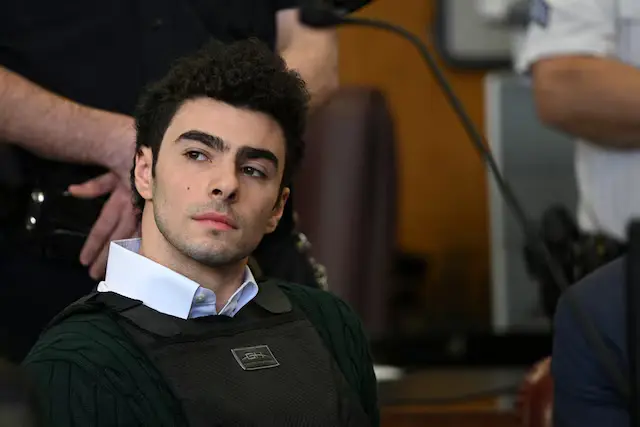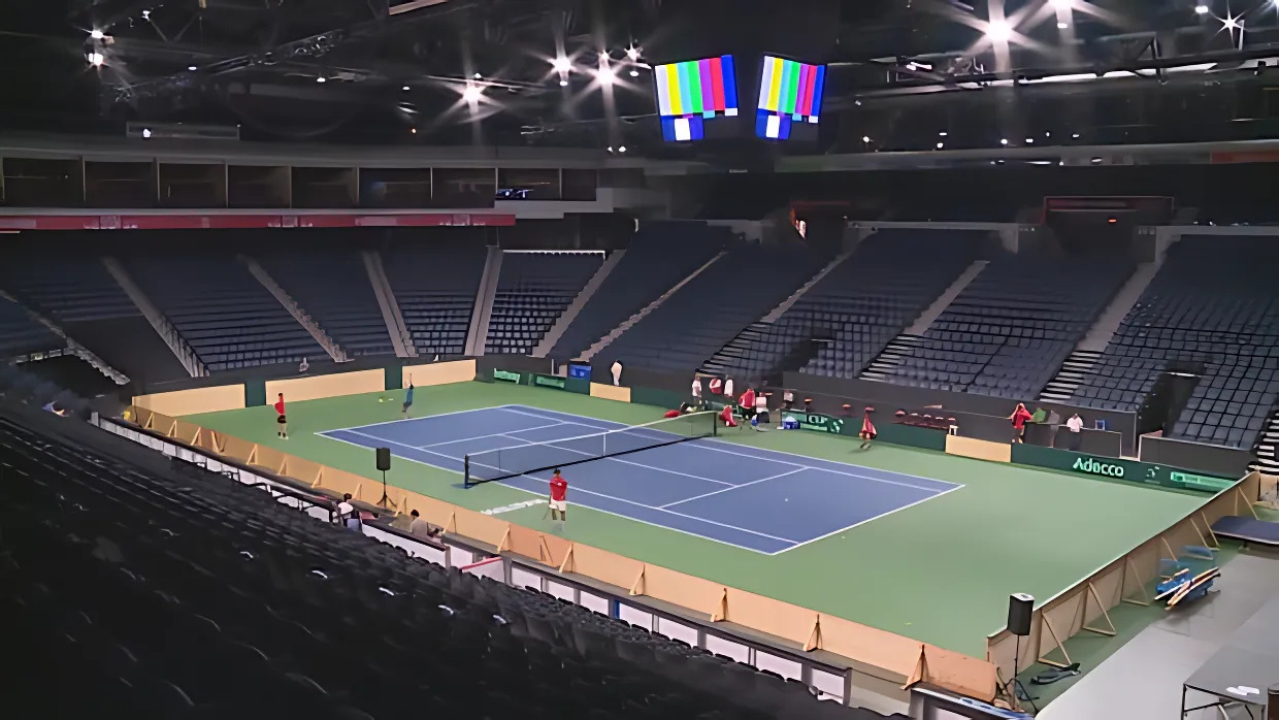
Luigi Mangione Appears in Court Over Killing of In
Luigi Mangione appears in court over murder of UnitedHealthcare CEO. Lawyers seek to dismiss state c

In Halifax, a group of activists is asking the CBC not to stream the upcoming Davis Cup tennis matches between Canada and Israel. The matches are scheduled to take place this Friday and Saturday, but the games will be held without any fans in the venue. Tennis Canada says the matches are being played in closed arenas because of safety concerns raised by local authorities and security agencies.
The protests and calls to cancel the livestream are happening because of Israel’s actions in Gaza and the West Bank. Many activists feel it is wrong to allow the matches to happen while violence, destruction, and starvation continue in Palestinian areas. More than 400 Canadian athletes and academics, including Olympic runner Moh Ahmed, have already signed letters urging Tennis Canada to cancel the event.
Several organizations, such as Independent Jewish Voices, Gazan Canadian Families, and Palestine Solidarity Halifax, are speaking out against the event. They believe that playing and broadcasting the matches supports Israel at a time when its actions are harming innocent people.
Asaf Rashid, who is with the International Centre of Justice for Palestinians—Canada, said that isolating Israel, including through sports boycotts, is an important way to protest Israel’s actions. He explained that such isolation is necessary because Israel’s violations of international law are serious and need to be addressed.
Tarek Gazawi, a Palestinian activist, said it is morally wrong to allow the games to go ahead while people are suffering. He appealed directly to media companies, asking them not to be a part of what he called injustice.
“Stop airing this event. Do not be complicit,” he said, urging broadcasters to take responsibility for how they present the situation.
Tennis Canada explained that it made the decision to close the doors to fans after being advised by local authorities and security teams that the event could be unsafe. Fans who had already bought tickets to the event will receive a full refund within 30 days.
Originally, the games were supposed to be played at the Scotiabank Centre in Halifax, but the organization decided it would be better to move them to a closed venue to avoid any security issues.
CBC, through spokesperson Kerry Kelly, confirmed that the network would continue to stream the tournament. CBC said that covering both Canadian and international sports is a part of its commitment to serve viewers. They did not mention whether they would reconsider broadcasting the matches despite the protests.
The Centre for Israel and Jewish Affairs (CIJA), a community organization, expressed disappointment that fans could not attend the matches. They said that cheering for Team Canada is an important part of being Canadian and that many fans had traveled from far away to support their team.
According to the CIJA, a small group of extremists hijacked the event, silencing thousands of people who simply wanted to show their support and pride for Canada.
The debate over the Canada vs. Israel matches is part of a larger conversation about how sports, politics, and international relations intersect. Many believe that sports events should be free from politics, while others argue that ignoring political realities means supporting injustices.
The activists in Halifax believe that by isolating Israel through boycotts and protests, more pressure will be placed on governments and organizations to hold Israel accountable for its actions.
Meanwhile, others feel that sports should bring people together and remain a way to celebrate human connection and national pride, not be used as a platform for political protests.
For fans, this decision is disappointing because watching a live match, especially with friends and family, is a memorable experience. Many people were excited to cheer for their team, meet fellow fans, and celebrate sport.
For players, it is also a difficult situation. They want to compete and represent their countries, but the political atmosphere has made it hard for them to focus on the game. Some players support the protests, while others simply want to play without political controversy.
As tensions continue to rise between Israel and Palestine, and as protests and calls for boycotts grow louder, organizations like Tennis Canada and CBC are caught in a tough position. They must decide whether to prioritize safety and fairness or stick to their commitments to fans and sports culture.
The coming days will show how the debate plays out and whether other broadcasters or sports organizations take similar actions. For now, the situation in Halifax reflects how deeply global conflicts affect even local events and how activism can influence decisions in powerful ways.